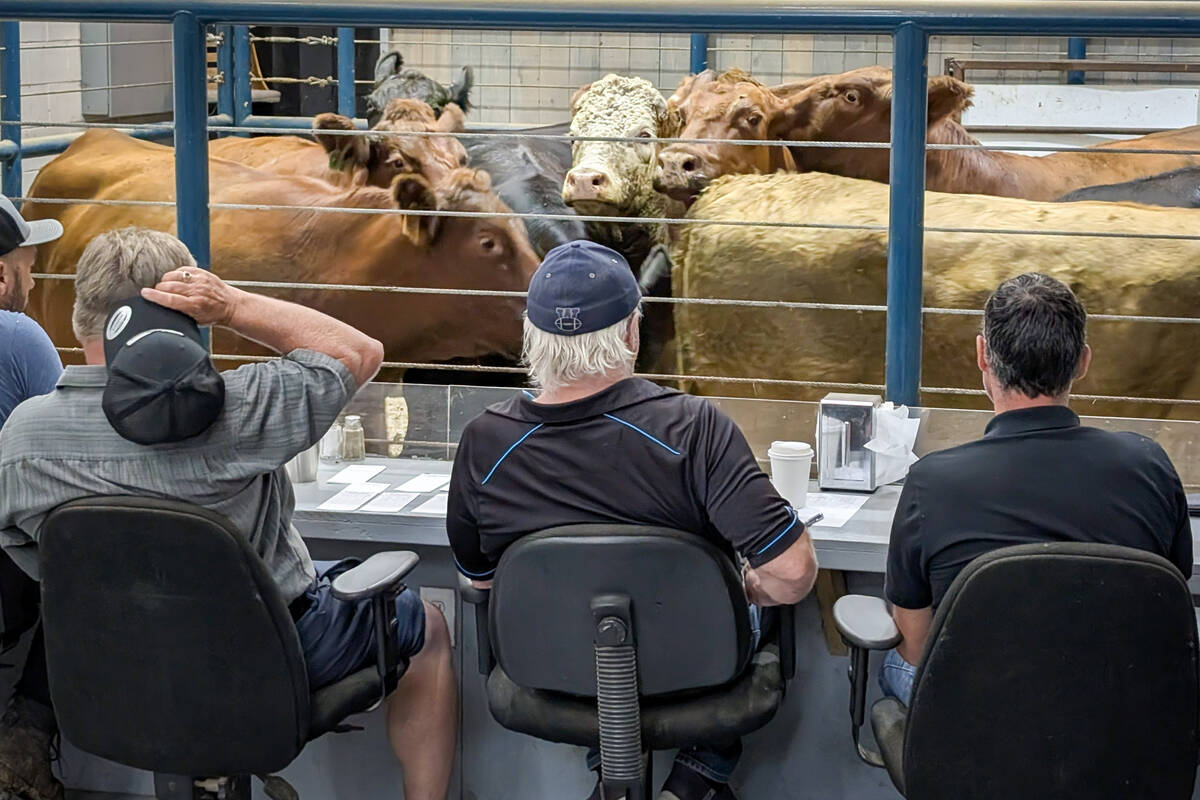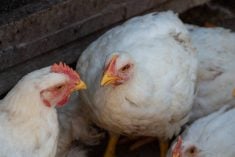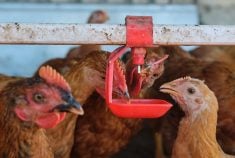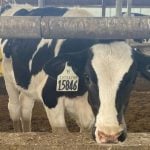Imports of live birds and unprocessed poultry and eggs from France are barred from Canada effective Sunday (Oct. 1), pending a risk assessment of France’s duck vaccination program for avian flu.
The Canadian Food Inspection Agency (CFIA) announced the temporary ban Tuesday, following France’s move to require mandatory vaccination against highly pathogenic avian flu (HPAI) in ducks raised for meat production starting this month.
CFIA said it has been in “close contact” with French and European Union officials on the matter since June, and received a presentation in July from France on that country’s HPAI vaccination plan.
Read Also

U.S. livestock: Cattle fall back as inventory hits 75-year low
Most Chicago Mercantile Exchange cattle futures fell on Friday. Lean hog contracts also dipped. Most-traded April live cattle futures settled…
France’s plan was announced after the European Union passed legislation in March on use of vaccination to mitigate animal disease outbreaks.
The French plan requires vaccinations of ducks for meat production. Vaccination of breeder ducks is permitted, but only for birds that will not be exported.
However, CFIA said, it’s not yet clear whether meat from vaccinated ducks will be eligible for export to other countries — nor how France plans to identify, trace and control vaccinated breeding stock.
CFIA said it’s “currently conducting” its risk assessment, and until that evaluation is complete, the suspension will be in effect.
The agency’s suspension on imports from France applies to live birds and hatching eggs; all unprocessed avian and poultry products and byproducts, including “edible or inedible” raw poultry meat, eggs, feathers, poultry manure and litter; laboratory material containing poultry products or byproducts; and any raw or unprocessed pet food containing poultry products or byproducts.
Cooked and canned or hermetically sealed, commercially sterile meat products are still eligible for import, CFIA said.
France, like Canada, the U.S. and many other countries, has seen its poultry industry hard hit by outbreaks of HPAI in the past couple of years.
CFIA reports that as of Sept. 21, Canada’s run of HPAI outbreaks since December 2021 has impacted an estimated 7.678 million domestic birds.
A lull in cases since May this year ended in September, as CFIA detected five outbreaks during the month including four premises in Alberta and one in southwestern Saskatchewan.
READ MORE: France stacks the deck against bird flu but risks issues
The U.S. Department of Agriculture’s Animal and Plant Health Inspection Serice (APHIS) on Friday also announced such a ban, also taking effect Oct. 1.
APHIS’ ban applies on imports of poultry from France, as well as live ducks, duck eggs, and “unmitigated/untreated” duck products from the APHIS-recognized European Poultry Trade Region (EPTR) as well as Iceland, Switzerland, Liechtenstein, and Norway. Great Britain is not included in the EPTR ban.
The U.S. doesn’t allow poultry from countries affected with HPAI “or from flocks that have been vaccinated by HPAI,” APHIS said in a release Friday.
Vaccination of poultry against HPAI “may mask HPAI virus circulating in poultry,” APHIS said, and vaccinated birds “may not show signs of infection, which could lead to the export of infected live animals or virus-contaminated products to the United States.”
Furthermore, APHIS said, EU member states and other non-EU countries in Europe have open access to the European common market for trade in avian commodities.
“With the way poultry moves under the EPTR, we currently cannot be assured countries trading in the European common market can reliably certify that exports do not originate from European countries that vaccinate poultry for HPAI,” APHIS said.
“Accordingly, these restrictions address the risk of open trade within Europe while accounting for the higher risk with imports from France.” — Glacier FarmMedia Network
















